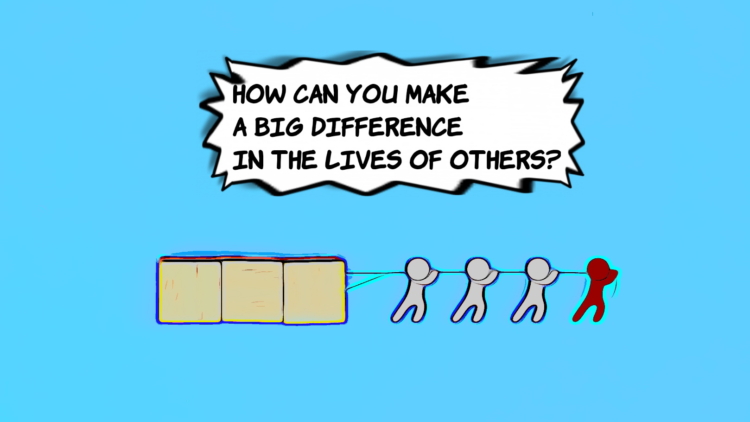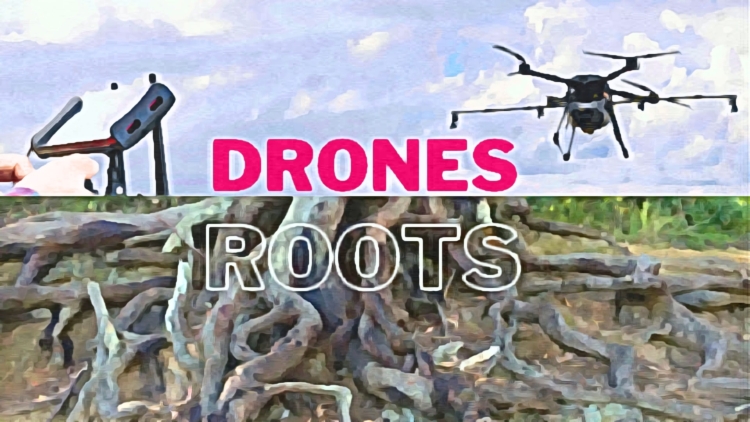Do you walk the talk?
Do you disrupt doing business or just chase market trends?
The challenges of agriculture blending with the societal problems we’re facing today require creativity and imagination; they’re neither unsolvable nor someone else’s responsibility. We must view them as part of our jobs and apply our utmost energies to overcome them. Operational offsets and improvements in efficiency are no longer the main narratives that inspire. Our market goes beyond counting leaf spots and bugs, goes towards prevention, environmentally friendly approaches, the box practices… This is the best timing for fundamental changes in the way we do business.
Saying this, I need to confirm that in everything we operate we aim to be the best or the second-best in our company. Not only by claiming optimistic mantras which often are not falling to the bottom line but ‘to walk the talk’ in line with disruptive initiatives i.e., to dare connect our industry with the entire food chain it’s a disruption for us that overcomes the historic reluctance of the sector to work together outside of its traditional approach.
To be disruptive you should always remember your role: how we solve the global food crisis, and how we help agriculture to transform and become part of the solution to climate change. To do this, we must learn from conventional and organic methods and go beyond them, by applying practices that regenerate soils, increase productivity with fewer inputs, capture carbon in the soils, and become digital and circular. All at the same time and this won’t happen in a vacuum, this takes time thus the industry should think for decades, not for years…
I’m convinced that in our company we do not just kick the can down the road but we aim to rip up the rule book instead. We are among the first actors (or we want to be the first) who do not just chase trends or arrive too late in the market. We provide our partners with new ideas and business models to answer today’s challenges, therefore, turning uncertainty and volatility into vision. This is a disruption to me, if not, we will be disrupted!
Listen to the answer by the writer
Regenerative agriculture? Biostimulants or bio-smokescreen?
Dubbed “beyond sustainable,” regenerative agricultural methodologies seek, indeed, to add to the soil through a self-nourishing ecological system that benefits the environment in the process.
To make it simple: Bio-products are usually less toxic than conventional applications. This is the reason for the increasing popularity of bio-based solutions and the awareness among farmers and consumers is likely to drive the market to grow significantly
Moreover, in a market characterized by rapid change, yesterday’s paradigms risk & embedded conventional practices becoming redundant or even harmful. Strategies to speed the adoption of bio-based approaches should be accelerated.
Speaking for our case, by the full engagement we seriously affirm our commitment to bio-direction, to bio-service in general by housing innovative product portfolios and registrations to be recognized as catalysts for the bio-solutions around the globe.
So far, the industry’s contribution towards bio-direction, is at its best, uncountable, lacking clear and harmonized benchmarks and indicators, and robust third-party verification. But this is an opportunity for the near future: we must build momentum in fighting the worsening climate crisis.
In nutshell, whatever differences remain among actors in the segment, all stand to benefit from working together to make a ‘real impact’ for a sustainable and regenerative food system from now on! In the end, global food security is strongly determined by crop production so, we need to pivot!
For all these reasons, allow me to take the risk to foresee another perspective about the future of biostimulants and biocontrol segments:
From a niche that focuses on a small group of farmers nowadays in very few years it will rapidly become the ‘status quo’ by capturing an unexpectedly important market share!. This development, apart from the power and glory that go with such dominance for the leaders, will also mean enjoying the highest profits & well-being of the actors serving this market in all layers. This development, in my view, won’t be about throwing a net into the ocean and hoping to get a lot of the fish, instead, will be a revolutionary shift for the sector.
Listen to the answer by the writer
Sustainability or just business as usual and profit?
Changing structures, application behaviors, and the greater reliance of farmers on difficulties pose a number of challenges for maintaining good food practices. Yet, it is not wholly clear whether we are climbing out of a hole or digging ourselves deeper… Therefore the question is: does today’s agriculture contribute to the magnitude of the challenge or at the same time it is a victim of a perverse strategy and of bad publicity that only focuses on profit? Until now, environmental responsibility in the food system often pits producers and farmers against each other, this goes the story…
Over the next years, crop production -especially the demand for very qualitative food – will increase significantly to meet the needs of a rising human population. This must be done w-o damaging the environment and the local ecosystem.
We have to piercingly understand that the farmer not only produces food, but he is also the main administrator of the environment and of good environmental practices.
The agriculture of tomorrow, supported by new technologies and policies, is expected to ensure the adjustments needed to avoid harming agricultural production and to contribute decisively to sustainability.
On the other hand, amid increasing consumer demand for transparency and a multitude of labels and initiatives, it can be hard to define what’s truly sustainable in the global agricultural system. By basic definition, sustainable food systems do not take away from the soil or environment. They seek to maintain Earth’s natural resources and the idea is to create farm systems that work in harmony with nature to improve the quality of life for every creature involved.
So, the power lies in the sector. Our role is to control how qualitative food is grown and distributed around the world also our collective goal should be to provide enough healthy, safe, and affordable food while solving climate change for generations to come.
Therefore, we have the moral duty to apply the triple bottom line concept in our business that posits firms to commit to measuring their social and environmental impact—in addition to their financial performance—rather than solely focusing on generating profit, or the standard “bottom line” but broken down into “three Ps” instead: profit, people, and the planet.
Listen to the answer by the writer
Go digital or not to support good agricultural practices?
While the demand for food will be raised significantly around the globe, the agricultural sector will be hit hard, as the food inflation, the rising inputs costs, and widespread shortages will force many farmers to scale back, we will have smaller harvests and this would drive up food prices around the world. Digital agriculture has the power to transform life -especially- for smallholder farmers around the globe, can help these small farmers surmount the above challenges, increasing their productivity and integration into food value chains and supporting their adoption of climate-smart practices.
So, why digital agriculture has not yet lived up to its potential? What is holding digital ag efforts back? There are several reasons i.e. too many start-ups try to roll out solutions in locations where the ecosystem is not mature enough to support it, the digital ecosystem’s inability to explain the added value and impact for farmers, innovation isn’t enough, and market matters because still remains fragmented and inefficient, etc.
But, the digitization of agricultural activity, despite being slow so far, has great benefits and a transformation in farmers’ mentality is needed given the external risks that affect crop production (volatile crop prices, water shortages, climate change, etc.). Go digital, in my opinion, will also narrow or even eliminate the gaps at labor and production costs from country to country and those who can go one step further will be able to continue to achieve profitability and maintain the viability of their firms and farms
It’s simple and plain on our table: digital technologies are used to optimize key components of food systems, increasing productivity and profitability, while reducing environmental impacts. The digital agricultural revolution will provide new means and methods for farmers to further optimize the management of resources, improve crop quality and quantity, and remain productive in a changing & challenging distribution model and world.
All players must work together to support digital agricultural development. We need all hands on deck to transform practices and mindset in supporting a transition that advances the development of the agriculture market.. When that happens, the benefits of digital agriculture will become a reality.
Listen to the answer by the writer
What’s your drive to go beyond?
The more divided the world becomes, the more we need culturally and emotionally intelligent leaders able to build bridges of understanding and navigate the complexities of the increasing role of Agri-Food industry within a polarized world of climate change.
Literally, I depend on my own paddle. I like to play against type and I’m not just watching from the sidelines. Acknowledge the challenge and act by optimizing to its peak, the social responsibility of individuals who are in the sector will maximize lifespan and peace of mind in the long run. I do the same, I act such as.
The mantra I say to my teams is that it’s not about why -and if- we are better than this or the other competitor. But what is it we stand for! Where we fit in this world, in this market, and how we will be better and even more ‘future-fit’ individuals and companies. In the end, our legacy would be determined by our successors and especially by the footprint which will be left to the new generation, the new entrants in the sector. You agree I suppose that we should not hand them the keys to a ‘house’ that immediately caught fire… I want to be part of the Game-Changers; this is my drive, passion, and hunger!
Listen to the answer by the writer
Panos Chamakiotis



